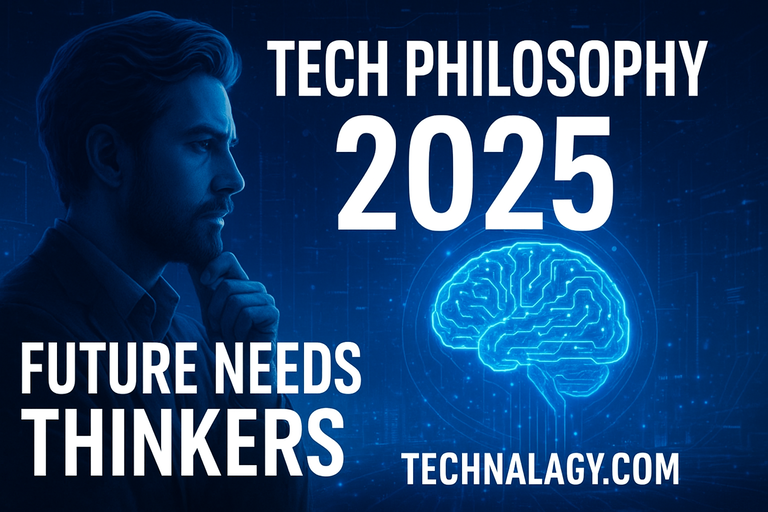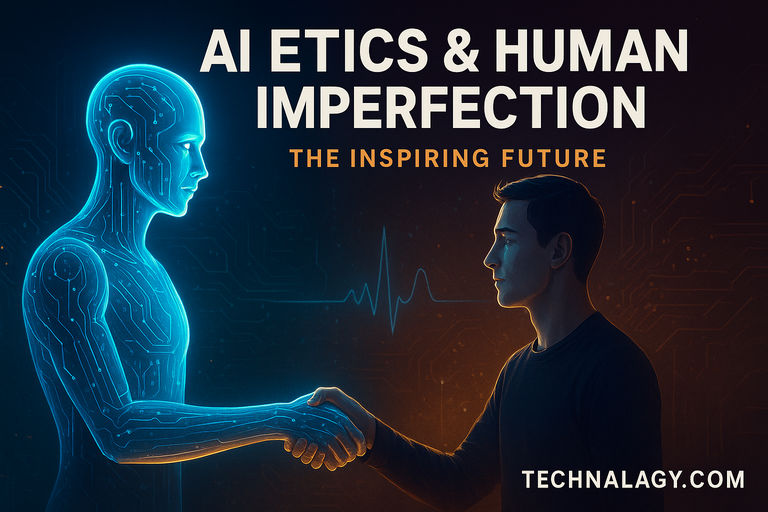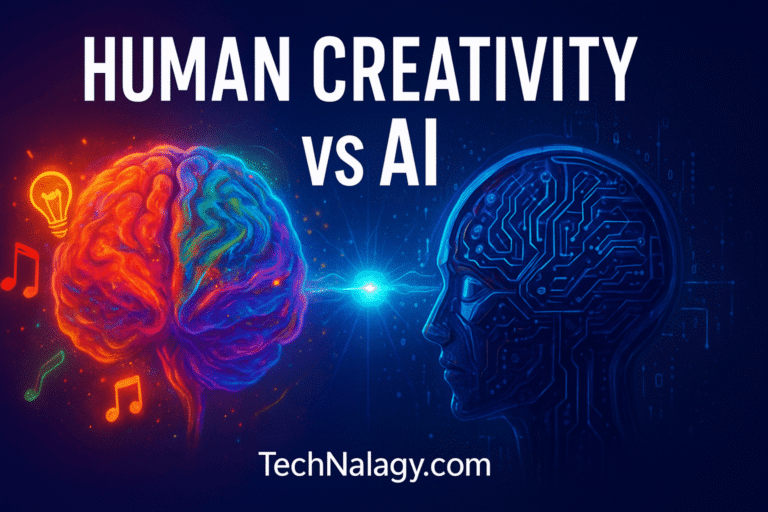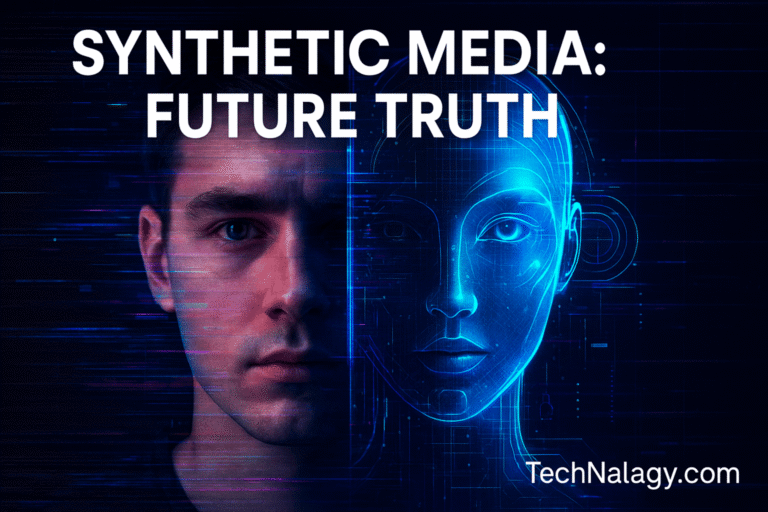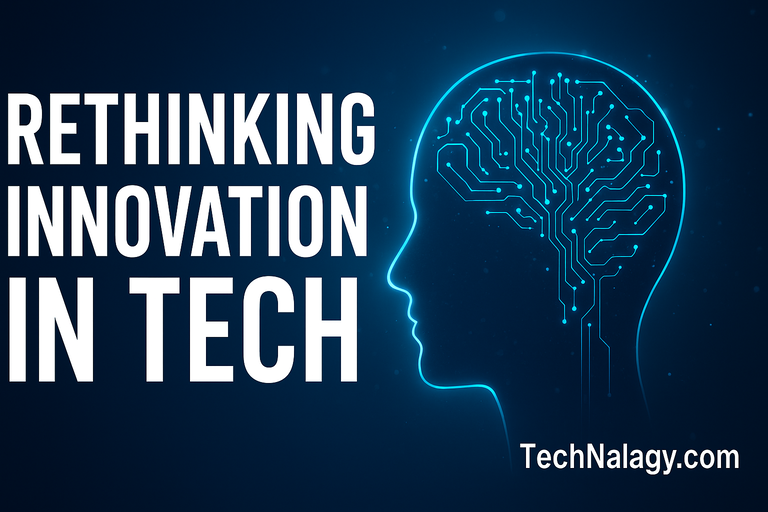Why the Future of Technology in 2025 Needs More Philosophers Than Engineers
In 2025, technology is advancing at a pace faster than human reflection can keep up with. Artificial intelligence writes code, robots perform surgeries, and algorithms decide who gets a loan or a job. Yet, one critical question lingers—are we thinking deeply enough about why we’re building what we build?
This question lies at the heart of a rising movement known as Tech Philosophy—a discipline that merges ethics, logic, and human understanding to shape a more responsible future. As automation, AI, and data systems reshape civilization, we don’t just need faster processors or cleaner code. We need deeper thinkers—philosophers who can ask the questions engineers often overlook: “Should we?” instead of only “Can we?”
The future of technology isn’t just about progress. It’s about purpose. And in 2025, the world needs philosophers as much as it needs engineers.
Table of Contents
What Is Tech Philosophy and Why It Matters in 2025
Tech Philosophy is more than a buzzword—it’s a call to bring moral reasoning, critical thought, and human empathy into the digital age. It explores how technological systems impact society, identity, and ethics.
In practical terms, Tech Philosophy asks questions like:
- How should AI be designed to make moral decisions?
- Should we allow technology to replace emotional or creative roles?
- How do we ensure innovation serves people, not profits alone?
As our lives become integrated with intelligent machines, these questions are no longer optional—they’re urgent. 2025 marks a pivotal year where emerging technologies—AI governance, neuro-symbolic computing, and spatial computing—are forcing societies to reconsider what it means to be human in a data-driven world.
When you think about Tech Philosophy, think about it as the “ethics of innovation”—a framework that reminds us that progress without wisdom can easily turn into chaos.
The Lost Connection — How Philosophy Shaped Early Innovation
Many people see technology and philosophy as opposites—one practical, one abstract. But history tells a different story. The world’s greatest scientific advancements were born from philosophical thought.
Take Aristotle, whose logic formed the foundation for computer programming concepts. Or Descartes, who questioned the nature of consciousness—paving the way for AI’s biggest debate: can machines think? Even Alan Turing, the father of modern computing, was deeply influenced by philosophical questions about the mind.
Philosophy once guided science by grounding discovery in moral reflection. But somewhere along the way, in the rush to innovate, the reflective part was left behind. Today, algorithms shape behavior faster than we can understand them, and few stop to ask, “What are we teaching these systems about humanity?”
This is where Tech Philosophy must return—to remind engineers that every line of code carries moral weight. As explored in Why the Future of AI Ethics Depends on Human Imperfection, true progress requires understanding our own limitations and biases before replicating them in machines.
The Problem — Innovation Without Introspection
Modern technology thrives on speed. Build fast, ship fast, iterate faster. Yet, this culture of acceleration often leaves no room for introspection.
From facial recognition systems that reinforce racial bias to social media algorithms that amplify division, many of today’s ethical problems stem from innovations that lacked philosophical foresight. Engineers designed systems that “work,” but not necessarily systems that are “right.”
In a world obsessed with performance metrics and data analytics, moral reasoning has become secondary. We have the technical power to build self-learning machines, but we still struggle to define what “good” outcomes mean for society.
Tech Philosophy challenges this imbalance. It argues that if innovation isn’t guided by introspection, it risks deepening inequality, destroying privacy, and eroding trust.
Why Engineers Alone Can’t Shape the Future
Engineers are trained to solve problems through precision, efficiency, and logic. But not all problems are technical—some are existential.
An engineer can design an algorithm that predicts behavior, but a philosopher asks whether predicting human behavior should even be allowed. One builds; the other questions the purpose of building.
This gap is why modern innovation sometimes feels soulless. In the pursuit of “smarter” tech, we risk losing the very qualities that make us human—emotion, creativity, and moral awareness.
As discussed in Human Creativity vs AI, machines may outperform humans in computation, but they lack the imaginative spark that drives empathy and meaning. Tech Philosophy is what helps us protect that spark—it ensures that technology enhances rather than replaces our humanity.
Without philosophical guidance, we end up optimizing systems for convenience at the cost of conscience.
The Rise of Ethical AI and Human Reflection in 2025
Thankfully, 2025 is witnessing a quiet revolution in how technology leaders view ethics. Companies, research institutions, and even governments are beginning to embed ethical frameworks directly into AI systems.
From Europe’s AI Act to Google’s and Microsoft’s emerging “Ethics Boards,” the focus on responsible AI development is growing. These changes are being driven by a global recognition that the future must be shaped by principles as much as programming.
According to the World Economic Forum’s Top 10 Emerging Technologies of 2025, the world’s most powerful innovations—like bio-computing and neuromorphic chips—demand a new kind of leadership: one that blends moral reasoning with technical expertise.
Tech Philosophy provides that bridge. It trains thinkers to ask how innovation affects humanity at large, not just how it boosts efficiency.
Tech Philosophy in Action — From Space Tourism to Smart Cities
The influence of Tech Philosophy can already be seen in futuristic fields like space tourism, smart cities, and digital governance.
For instance, in the race to commercialize space travel, ethical questions about sustainability, safety, and social equality are emerging. Who gets to travel beyond Earth? Should space exploration prioritize curiosity or capitalism?
As seen in Space Tourism 2025: Costs, Companies & What the Future Holds, the debate around access and environmental responsibility shows how Tech Philosophy can shape even the boldest frontiers of innovation.
In smart cities, philosophical reflection drives questions like: Should citizen data be collected for convenience or only with consent? and How much automation is too much in public life?
From healthcare AI to digital twins of urban environments, every technological leap now requires ethical grounding. Tech Philosophy ensures we remain in control of technology—rather than technology controlling us.
The Balance Between Logic and Humanity
Logic builds technology, but humanity gives it meaning. Without empathy, innovation can easily turn into exploitation.
Philosophers bring a different dimension to engineering—they think about intention. While engineers focus on “how” to create, philosophers focus on “why” to create. Together, they can design systems that are both effective and ethical.
The combination of logical precision and human empathy defines Tech Philosophy. It’s not anti-technology; it’s pro-purpose. It ensures that the brilliance of our machines aligns with the moral compass of their creators.
Why 2025 Is the Turning Point for Tech Philosophy
The year 2025 represents more than another milestone—it’s the moment when society begins to realize that progress without ethics leads to imbalance.
We’ve seen it in deepfake manipulation, data breaches, and algorithmic injustice. These challenges aren’t purely technical—they’re philosophical.
Around the world, universities are introducing new courses that blend philosophy and computer science. Tech companies are hiring ethics officers. Policymakers are drafting AI accountability frameworks.
These changes all point toward one truth: the world is finally embracing Tech Philosophy as the foundation for responsible innovation.
Philosophers will not replace engineers—but they will help guide them. Together, they’ll ensure technology evolves with wisdom, not just intelligence.
Conclusion: Rethinking the Future of Technology
The 21st century began with a belief that technology could solve everything. But as we enter the middle of the 2020s, it’s clear that innovation alone isn’t enough.
We need a new generation of thinkers who can blend curiosity with conscience—engineers who build systems that serve people, and philosophers who ensure those systems reflect our humanity.
Tech Philosophy reminds us that progress without reflection is directionless. It’s not about slowing innovation—it’s about steering it.
The engineers of tomorrow will write the code that powers civilization.
But the philosophers? They’ll write the values that define it.

Kamran Khatri is the founder of technalagy.com, where he shares insights on AI, future tech, gadgets, smart homes, and the latest tech news. Passionate about making innovation simple and accessible, he writes guides, reviews, and opinions that help readers stay ahead in the digital world.

